|
|
|
|
|
|
|
|
VII International Conference on Cryopedology, August 21-25, 2017 (Yakutsk, Russia). The conference will be hosted by the Institute for Biological Problems of the Cryolithozone of the Siberian Branch of the Russian Academy of Sciences (SB RAS). Plenary reports will be organized in the hall of the Academy of Sciences of the Sakha (Yakutia) Republic. The official languages of the conference are English and Russian (with translation). All technical facilities (projectors, computers, video sets) will be available during the conference for presentation of papers. Additional information will be available soon. See the Facebook page here.
IARPC Public Webinar Series: The Fulbright Arctic Initiative (August 25, 2017 1pm EDT) The Fulbright Arctic Initiative during the U.S. chairmanship of the Arctic Council (2015-2017) brought together 16 scholars from across the Arctic region. Using a collaborative model to translate theory into practice, the scholars collectively addressed public policy research questions relevant to the Arctic nations' shared challenges in energy, water, health and infrastructure. The co-lead scholars and some of the individual scholars will reflect on their experiences and the impacts of this unique and innovative variation on the Fulbright model. More information at www.iarpccollaborations.org/webinars
|
Media
Narwhals are Helping NASA Understanding Melting Ice and Rising Seas. Greenland's ice cap holds beneath it 10 percent of the earth's freshwater, enough to raise global sea levels by 20 feet. While there's no doubt it is melting, scientists have little certainty about exactly what's happening inside this 10,000-year-old ice roughly three times the size of Texas. Last winter was the warmest on record in the Arctic, and as Greenland heats up, understanding this glaciate has become essential to navigating our future. That's why scientists need narwhals, whales with 9 foot long unicorn-like tusks, which are some of the only mammals benefiting from all that melting ice. Bloomberg
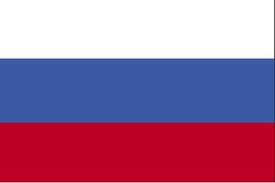 Russian Tanker Completes Arctic Passage Without Aid of Icebreakers. Russian Tanker Completes Arctic Passage Without Aid of Icebreakers. A Russian-owned tanker, built to traverse the frozen waters of the Arctic, completed a journey in record time from Europe to Asia this month, auguring the future of shipping as global warming melts sea ice. The Christophe de Margerie, a 984-foot tanker built specifically for the journey, became the first ship to complete the so-called Northern Sea Route without the aid of specialized ice-breaking vessels, the ship's owner, Sovcomflot, said in a statement. New York Times
Canary in the Arctic Coal Mine: Warming Harms Migratory Birds. What happens in the Arctic, doesn't stay in the Arctic: change flows south of the Arctic Circle as an altered jet stream brings extreme weather to middle latitudes, some scientists say. It also rises, as thawing permafrost leaks CO2and methane into the atmosphere, heightening global temperatures. And, more and more, it flies out of the North, into temperate and tropical ecosystems, as migratory birds are impacted adversely by a hotter Arctic climate. In recent years, climate change-affected migratory species have become a major focus of the Arctic Council's Conservation of Arctic Flora and Fauna subgroup, and the United Nations Convention on Migratory Species. News Deeply
Russia to up Arctic Oil Production to 100-106 Million Tons in 2017. About 106 million metric tons of oil will be produced in the Russian Arctic in 2017, TASS quotes Russian Deputy Minister of Energy Kirill Molodtsov as saying at a news conference. "We have a 23 percent increase in offshore oil production over the six months of this year, and we are expecting an increase in Arctic oil production of at least 10 percent. During the first six months, we have extracted 13.6 million metric tons of offshore oil, while last year we extracted only 11 million metric tons over the same period. Last year we extracted a total of 92 million metric tons of oil in the Arctic, and this year we expect to extract up to 100-106 million metric tons. In terms of gas production, we expect an increase of three to four percent on last year's figures," Molodtsov said. The Arctic
 Arctic Researchers to Study Wind Effects on Marine Life. Arctic Researchers to Study Wind Effects on Marine Life. Scientists on board a federal research ship will depart for the Arctic Ocean this week to study how changing winds affect plant and animal species. The Sikuliaq will depart Friday from Nome for the Beaufort Sea. Chief scientist Carin Ashjian of Woods Hole Oceanographic Institution says researchers will study waters over the break between the continental shelf and the Arctic Ocean. KTUU
|
|
Future Events
 2017 University of the Arctic Rectors' Forum and Conference, August 27-29, 2017 (Aberdeen, Scotland). This conference will also consider how northern scholarship can add to discussions on the North into broader terrains of intellectual engagement. In so doing, it will challenge dominant paradigms of research in both the natural and the social sciences, above all by calling into question the very separation of the world of nature from that of human society which underwrites the distinction between these two branches of scientific inquiry. In its place the conference will seek to forge a new practice of interdisciplinary research, done in collaboration with northern residents and on their terms, which recognizes that every discipline is itself an ongoing conversation, or a way of knowing, rather than a compartment within an overarching, hierarchically organized system of knowledge. Conversations from the North will, then, help to generate a science that is more open-ended, responsive to environmental variation and respectful of the wisdom of inhabitants. 2017 University of the Arctic Rectors' Forum and Conference, August 27-29, 2017 (Aberdeen, Scotland). This conference will also consider how northern scholarship can add to discussions on the North into broader terrains of intellectual engagement. In so doing, it will challenge dominant paradigms of research in both the natural and the social sciences, above all by calling into question the very separation of the world of nature from that of human society which underwrites the distinction between these two branches of scientific inquiry. In its place the conference will seek to forge a new practice of interdisciplinary research, done in collaboration with northern residents and on their terms, which recognizes that every discipline is itself an ongoing conversation, or a way of knowing, rather than a compartment within an overarching, hierarchically organized system of knowledge. Conversations from the North will, then, help to generate a science that is more open-ended, responsive to environmental variation and respectful of the wisdom of inhabitants.
- Small and off-grid community energy solutions
- Oil and gas development
- Renewable energy
- Regulation and Financing
- Transportation and transmission
The AES is a multi-disciplinary event expected to draw several hundred industry officials, scientists, academics, policy makers, energy professionals and community leaders together to collaborate and share leading approaches on Arctic energy issues.
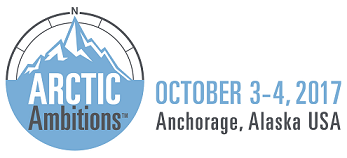 Arctic Ambitions VI: International Business Conference & Trade Show, October 3-4, 2017 (Anchorage, Alaska USA). Arctic Ambitions VI: International Business Conference & Trade Show, October 3-4, 2017 (Anchorage, Alaska USA). For the 6th year in a row, World Trade Center Anchorage will host the Arctic Ambitions Conference - an event focused on trade, commerce, and investment in the region. This year, the theme of the conference is New Arctic Realities: The Path Forward. With this theme, the following areas will be highlighted: transportation, technology and innovation, infrastructure development, natural resource exploration and production, international trade opportunities, finance and investment, pan-Arctic commerce, and the new political climate toward Arctic development under the Trump Administration.
108th meeting of the US Arctic Research Commission, October 10, 2017 (Anchorage, Alaska USA). Agenda coming soon...
5th Northern Oil and Gas Research Form, October 11-13, 2017 (Anchorage, Alaska USA). The United States is hosting the 5th Northern Oil and Gas Research Forum from October 11-13, 2017, in Anchorage, Alaska. This meeting will feature current research and highlight information needs for management of petroleum activities in the US and Canadian Arctic. Abstracts for poster presentations on research and how research is used in management actions are presently being solicited. Please visit the Forum's website (here) for additional details. Deadline for abstract submission is September 10. There is no registration fee for the Forum. Please use the website link above for information on registration, agenda, lodging and transportation.
2017 Arctic Circle Assembly, October 13-15, 2017 (Reykjavik, Iceland). The annual Arctic Circle Assembly is the largest annual international gathering on the Arctic, attended by more than 2000 participants from 50 countries. The Assembly is held every October at the Harpa Conference Center and Concert Hall and is attended by heads of states and governments, ministers, members of parliaments, officials, experts, scientists, entrepreneurs, business leaders, indigenous representatives, environmentalists, students, activists and others from the growing international community of partners and participants interested in the future of the Arctic.
5th Alaska Native Health Research Conference, October 16-18, 2017 (Anchorage, Alaska USA). This conference provides a forum to share current health research occurring in Alaska with Alaska Native people. The theme of the conference is "Strengthening Communities through Research for a Healthier Tomorrow". Health topics to be discussed include aging, suicide, health risks associated with added sugar in the diet, infectious disease, and cancer. The conference aims to engage attendees in a fruitful dialogue on the research currently happening in communities, and how to improve research so that it is respectful of and reflects the needs of the Alaska Native people and their communities. We will also identify the areas where research is not being conducted and discuss ways to address these research gaps. This event is sponsored by The Alaska Native Tribal Health Consortium (ANTHC) Health Research Review Committee.
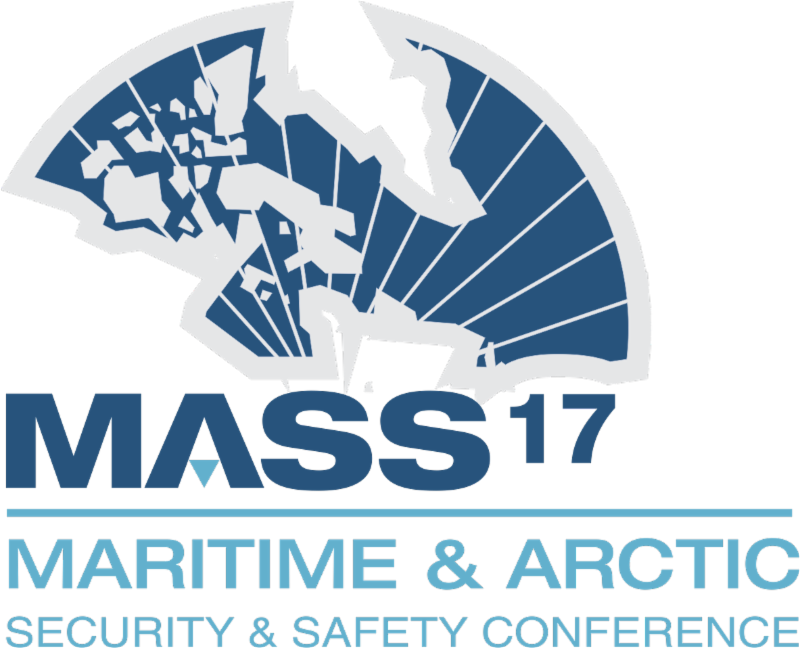 Maritime & Arctic Security & Safety Conference (MASS17) "Arctic Horizons," October 31- November 1, 2017 (Newfoundland & Labrador Canada). Now in its fifth year, MASS has gained an international reputation as a must-attend event to gain a wide perspective on challenges, opportunities and policies related to the Arctic and North Atlantic maritime environments. The aim of this Government of Canada and the Government of Newfoundland and Labrador supported international conference is to promote stakeholder collaboration, technological innovation, harsh environment research & development, and world-class education efforts that are contributing to both Maritime and Arctic issues. This two day conference will draw a diverse group of speakers and attendees representing government, military, Canadian and U.S. Coast Guard, industry, academic leaders, Northern Leaders, research and other key stakeholders. We hope you can join us to be a part of this important dialogue Maritime & Arctic Security & Safety Conference (MASS17) "Arctic Horizons," October 31- November 1, 2017 (Newfoundland & Labrador Canada). Now in its fifth year, MASS has gained an international reputation as a must-attend event to gain a wide perspective on challenges, opportunities and policies related to the Arctic and North Atlantic maritime environments. The aim of this Government of Canada and the Government of Newfoundland and Labrador supported international conference is to promote stakeholder collaboration, technological innovation, harsh environment research & development, and world-class education efforts that are contributing to both Maritime and Arctic issues. This two day conference will draw a diverse group of speakers and attendees representing government, military, Canadian and U.S. Coast Guard, industry, academic leaders, Northern Leaders, research and other key stakeholders. We hope you can join us to be a part of this important dialogue
 Polar Law Symposium 2017 and Rovaniemi Arctic Spirit, November 13-16, 2017 (Rovaniemi, Finland). The purpose of the Polar Law Symposium is to examine, in detail, the implications of the challenges faced by the Polar Regions for international law and policy and to make recommendations on appropriate actions by states, policy makers and other international actors to respond to these emerging and re-emerging challenges. The Rovaniemi Arctic Spirit Conference is integrated with the Polar Law Symposium, which will be organized by the Northern Institute for Environmental and Minority Law at the Arctic Center of the University of Lapland. Polar Law Symposium 2017 and Rovaniemi Arctic Spirit, November 13-16, 2017 (Rovaniemi, Finland). The purpose of the Polar Law Symposium is to examine, in detail, the implications of the challenges faced by the Polar Regions for international law and policy and to make recommendations on appropriate actions by states, policy makers and other international actors to respond to these emerging and re-emerging challenges. The Rovaniemi Arctic Spirit Conference is integrated with the Polar Law Symposium, which will be organized by the Northern Institute for Environmental and Minority Law at the Arctic Center of the University of Lapland.
ArcticNet invites the global Arctic research community to Arctic Change 2017! This conference will bring together Arctic researchers and students with Inuit, Northerners and government, industry and NGO stakeholders. The world's foremost Arctic scientists will present research findings and discuss impacts of climate change and modernization. With 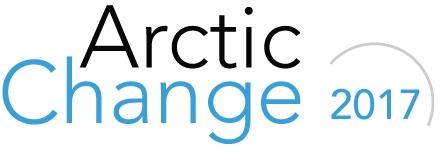 over 1500 participants expected, Arctic Change 2017 will be one of the largest trans-sectoral international Arctic research conferences held in Canada. We welcome students and early career researchers to participate in "Student Day" at the start of the Conference. See an excerpt from last year: ArcticNet ASM2016. over 1500 participants expected, Arctic Change 2017 will be one of the largest trans-sectoral international Arctic research conferences held in Canada. We welcome students and early career researchers to participate in "Student Day" at the start of the Conference. See an excerpt from last year: ArcticNet ASM2016.
ISAR-5 Fifth International Symposium on Arctic Research, January 15-18, 2018 (Tokyo, Japan). The fifth ISAR has been planned at the recommendation of the science steering committee of ISAR-4, which was held in Toyama, Japan in April 2015. The fifth ISAR will be devoted to discussions on environmental changes in the Arctic and their regional and global implications, to seek additional international scientific collaboration in this area by gathering, synthesizing and sharing information related to these changes occurring in the Arctic. Special emphasis will be placed on the fields of the social sciences and humanities, which were not included in the previous ISARs. ISAR-5 will consist of general sessions and special sessions. The general sessions will address the following topics: atmosphere; ocean and sea ice; rivers, lakes, permafrost, and snow cover; ice sheets, glaciers, and ice cores; terrestrial ecosystems; marine ecosystems; geospace; policies and economy; and social and cultural dimensions. Special sessions will be solicited on cross-cutting themes.
The Effects of Climate Change on the World's Oceans, June 4-8, 2018 (Washington, DC USA).
The 4th International Symposium will bring together experts from around the world to better understand climate impacts on ocean ecosystems - and how to respond. The event is hosted by a variety of groups including International Council for the Exploration of the Sea (ICES), North Pacific Marine Science Organization (PICES), Intergovernmental Oceanographic Commission of UNESCO (IOC), and Food and Agriculture Organization of the United Nations (FAO).
 POLAR 2018, June 15-27, 2018 (Davos, Switzerland).POLAR2018 is a joint event from the Scientific Committee on Antarctic Research (SCAR) and the International Arctic Science Committee (IASC). The SCAR meetings, the ASSW and the Open Science Conference will be hosted by the Swiss Federal Institute for Forest, Snow and Landscape Research WSL under the patronage of the Swiss Committee on Polar and High Altitude Research. The WSL Institute for Snow and Avalanche Research SLF is organizing POLAR2018. POLAR 2018, June 15-27, 2018 (Davos, Switzerland).POLAR2018 is a joint event from the Scientific Committee on Antarctic Research (SCAR) and the International Arctic Science Committee (IASC). The SCAR meetings, the ASSW and the Open Science Conference will be hosted by the Swiss Federal Institute for Forest, Snow and Landscape Research WSL under the patronage of the Swiss Committee on Polar and High Altitude Research. The WSL Institute for Snow and Avalanche Research SLF is organizing POLAR2018.
17th International Congress of Circumpolar Health (ICCH17), August 12-15, 2018 (Copenhagen, Denmark). The ICCH congresses are held every third year in different locations in the circumpolar area and represent the largest scientific meetings worldwide on circumpolar health. The ICCH congresses serve as the primary source of information exchange and scholarly communication in issues relating to circumpolar health. More than 750 participants generally register and participate in each Congress, and more than 400 scientific papers or posters are usually presented.
Arctic Biodiversity Congress, October 9-11, 2018 (Rovaniemi, Finland). The second Arctic Biodiversity Congress is hosted by the Conservation of Arctic Flora and Fauna (CAFF), the biodiversity working group of the Arctic Council, and the Ministry of the Environment, Finland. The second Arctic Biodiversity Congress will build on the success of the first Congress, held in 2014 in Trondheim, Norway, and will bring together scientists, policymakers government officials, Indigenous representatives, Traditional Knowledge holders, industry, non-governmental organizations, and others to promote the conservation and sustainable use of Arctic biodiversity.
|
|

  
4350 N. Fairfax Drive, Suite 510
Arlington, VA 22203, USA
External links in this publication, and on the USARC's World Wide Web site ( www.arctic.gov) do not constitute endorsement by the US Arctic Research Commission of external Web sites or the information, products or services contained therein. For other than authorized activities, the USARC does not exercise any editorial control over the information you may find at these locations. These links are provided consistent with the stated purpose of this newsletter and the USARC Web site.
|
|
|
|
|
|
|
|
|
 Russian Tanker Completes Arctic Passage Without Aid of Icebreakers. A Russian-owned tanker, built to traverse the frozen waters of the Arctic, completed a journey in record time from Europe to Asia this month, auguring the future of shipping as global warming melts sea ice. The Christophe de Margerie, a 984-foot tanker built specifically for the journey, became the first ship to complete the so-called Northern Sea Route without the aid of specialized ice-breaking vessels, the ship's owner, Sovcomflot, said in a statement. New York Times
Russian Tanker Completes Arctic Passage Without Aid of Icebreakers. A Russian-owned tanker, built to traverse the frozen waters of the Arctic, completed a journey in record time from Europe to Asia this month, auguring the future of shipping as global warming melts sea ice. The Christophe de Margerie, a 984-foot tanker built specifically for the journey, became the first ship to complete the so-called Northern Sea Route without the aid of specialized ice-breaking vessels, the ship's owner, Sovcomflot, said in a statement. New York Times Russian Tanker Completes Arctic Passage Without Aid of Icebreakers. A Russian-owned tanker, built to traverse the frozen waters of the Arctic, completed a journey in record time from Europe to Asia this month, auguring the future of shipping as global warming melts sea ice. The Christophe de Margerie, a 984-foot tanker built specifically for the journey, became the first ship to complete the so-called Northern Sea Route without the aid of specialized ice-breaking vessels, the ship's owner, Sovcomflot, said in a statement. New York Times
Russian Tanker Completes Arctic Passage Without Aid of Icebreakers. A Russian-owned tanker, built to traverse the frozen waters of the Arctic, completed a journey in record time from Europe to Asia this month, auguring the future of shipping as global warming melts sea ice. The Christophe de Margerie, a 984-foot tanker built specifically for the journey, became the first ship to complete the so-called Northern Sea Route without the aid of specialized ice-breaking vessels, the ship's owner, Sovcomflot, said in a statement. New York Times
 Arctic Researchers to Study Wind Effects on Marine Life. Scientists on board a federal research ship will depart for the Arctic Ocean this week to study how changing winds affect plant and animal species. The Sikuliaq will depart Friday from Nome for the Beaufort Sea. Chief scientist Carin Ashjian of Woods Hole Oceanographic Institution says researchers will study waters over the break between the continental shelf and the Arctic Ocean.
Arctic Researchers to Study Wind Effects on Marine Life. Scientists on board a federal research ship will depart for the Arctic Ocean this week to study how changing winds affect plant and animal species. The Sikuliaq will depart Friday from Nome for the Beaufort Sea. Chief scientist Carin Ashjian of Woods Hole Oceanographic Institution says researchers will study waters over the break between the continental shelf and the Arctic Ocean. 
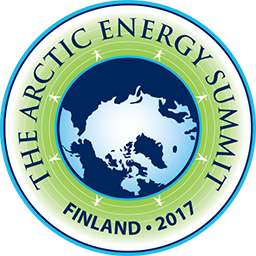



 over 1500 participants expected, Arctic Change 2017 will be one of the largest trans-sectoral international Arctic research conferences held in Canada. We welcome students and early career researchers to participate in "Student Day" at the start of the Conference. See an excerpt from last year:
over 1500 participants expected, Arctic Change 2017 will be one of the largest trans-sectoral international Arctic research conferences held in Canada. We welcome students and early career researchers to participate in "Student Day" at the start of the Conference. See an excerpt from last year: 


